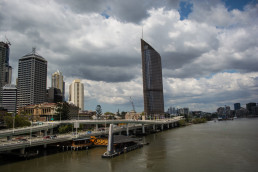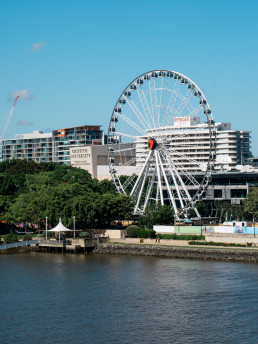Karen's Story
Karen’s Story
Over several years, LawRight staff built trust and worked together to achieve a rare Forensic Order revocation. Karen is in her 70s and experiences high levels of anxiety about any changes in her life. Many years ago, during a relapse of her schizophrenia, she committed a minor property crime, and reacted to police who sought to detain her – due to her illness, she believed that they were trying to kidnap her. This resulted in assault and weapons charges and ultimately a Forensic Order.
Karen has lived a very quiet life since and cooperated with her treating team but it has been challenging to move her off the Order as she is too anxious to attend Tribunal hearings and does not want to talk to staff for longer than 10 minutes at a time. However, when Karen realized that a Forensic Order will stop her getting her preferred support and aged care help as she gets older, she knew she could trust us and decided to try for a revocation for the first time in years.
This result is particularly significant because the clinical evidence, client presentation and resistance from the Attorney-General have remained similar for some years. LawRight’s advocacy and legal argument ultimately made the difference.
Copyright © 2023 LawRight, All rights reserved.
Julie's Story
Julies’s Story
Julie still suffers from paranoid delusions which are exacerbated by her active ICE addiction but wanted to move on with her life. Placed on a Forensic Order while judged temporarily unfit for trial, Julie was stuck where she had few friends or family.
Julie wanted to move towns and jobs but felt unable to make any permanent decisions, as at any time, she could be found fit for trial and potentially sent to jail. Julie was sick of living in limbo and wanted to get her court matters dealt with, even if she ended up with a jail sentence. LawRight concluded she met the Presser criteria for fitness for trial despite some ongoing psychotic symptoms and drug use and had capacity to instruct us. We were successful in having Julie found fit for trial. Julie’s Forensic Order will be automatically revoked when she appears in court to have her charges dealt with. Julie told us she was grateful for our assistance as she had previously had negative experiences with lawyers.
Copyright © 2023 LawRight, All rights reserved.
Dennis' Story
Dennis’ Story
While Rheumatic Heart Disease (RHD) has been eliminated from most Australian cities, the rates of RHD in Aboriginal and Torres Strait Islander communities are equivalent to developing nations. Comorbidities of chronic health and mental health conditions are common amongst our First Nation clients.
Dennis has acute RHD, as well as a 20-year history of multiple admissions to psychiatric hospitals. Increased support from a medium secure health facility has helped Dennis remain stable for several years, despite significant Sorry Business happening in that time with the loss of both his parents. Dennis was unable to attend either funeral as he was detained in hospital away from his hometown. He has demonstrated considerable will power to recently overcome drug addictions that started as a teenager.
LawRight has supported Dennis through several hearings. We helped his treating team convince the Tribunal that Dennis no longer needed an inpatient Forensic Order, despite the intensive support he relies on for his physical and mental health. The crux of our argument rested on section 28 of the Human Rights Act 2019. We argued that continuing to be held as an inpatient in a large city away from his country and community was an unreasonable restriction of Dennis’s right as an Aboriginal man to maintain his identity, cultural heritage, and kinship ties. The change to community category means that Dennis can move back to his hometown to spend time with his family on Country, which is increasingly important as his life expectancy is now measured in months.
Copyright © 2023 LawRight, All rights reserved.


